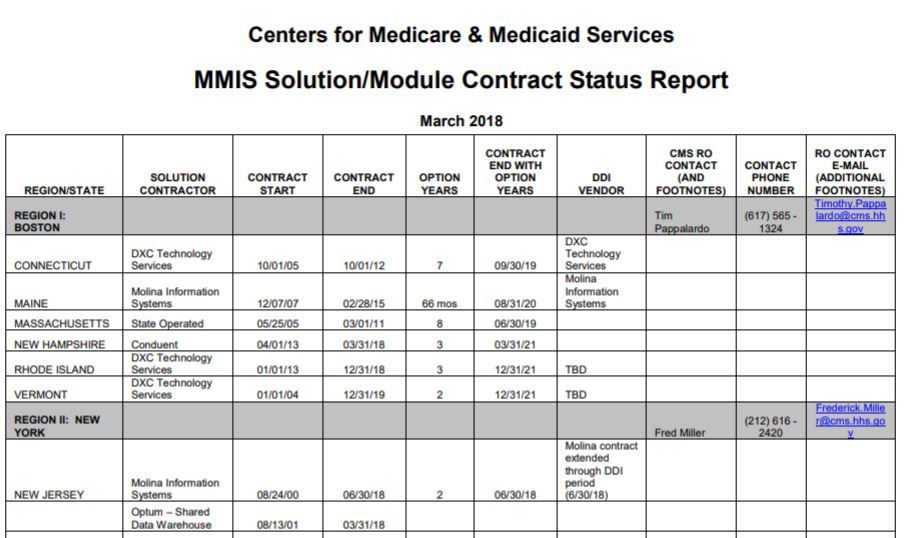
For those of you following EVV (we’ve covered it a bit over the years as it relates to home health, program integrity, etc) – you may be interested in the forming of the National Electronic Visit Verification Association (NEVVA).
Press release info below
Repost of Press Release
Gaining Momentum: National Electronic Visit Verification Association (NEVVA) Formed and Executive Director Announced
New organization appoints industry expert, Mark Dillon, to leadership role
Deerfield Beach, FL — (ReleaseWire) — 06/21/2018 — The National EVV Association (NEVVA) announced today that the organization has officially completed its formation and incorporation in the state of Florida and has filed for non-exempt status with the IRS. NEVVA, spurred as a result of the recent national EVV Summit, sponsored by Tellus, LLC, a leading provider of mobile health and EVV technology, is intended to expand the EVV conversation, creating a leadership forum that bridges the key constituencies across states, managed care organizations and provider agencies. NEVVA will focus solely on EVV and will serve as the industry voice and resource for all news, information, expertise and advocacy related to EVV.
As part of the initial formation of the association, Mark Dillon, founder and CEO of Pulsewrx, Inc., has been appointed to the role of Executive Director for NEVVA.
Mark Dillon is a pioneer in the EVV industry and has a deep understanding of GPS, Wireless Networks and the applicability in Home and Community-Based Care. Dillon completed the first GPS EVV-based implementation for a State Medicaid Department and its respective MCO contractors. Dillon has served as a GPS industry expert to Government payers and State Medicaid Departments in the structuring of their EVV solution for a range of mobile delivery services.
A speaker at this year’s EVV Summit, Dillon said, “Everyone who knows me knows that I’m extremely passionate about EVV. I feel very strongly that it’s good for everyone involved and the right thing to do. I’m honored to lead this new organization.”
Dillon’s first area of responsibility is to establish the organization’s bylaws and membership categories. A logo identity and temporary web presence at www.nevva.org has been established to collect contact information for anyone interested in joining the organization.
EVV enables health care providers to confirm that care services were actually delivered by using a variety of electronic methods like GPS geofencing, biometric information capture, telephony and other methods.
EVV became a national requirement for Medicaid-reimbursed personal care services and home health care through the 21st Century Cures Act, enacted on December 13, 2016, intended to accelerate health care innovation. The Cures Act relies, in part, on savings generated through reductions in fraud, waste and abuse from EVV.
To be compliant with the Cures Act, personal care services are required to be verified using EVV technology beginning January 1, 2019, and home health services beginning January 1, 2023. The Centers for Medicare and Medicaid Services recently released much-anticipated guidance that clarified certain points of the provision but did not lift any requirement to deploy EVV by those deadlines.
Following the announcement of NEVVA, Tellus CEO Brad Levine said, “I felt strongly that this conversation needed to occur, which is why Tellus took the lead in sponsoring the first EVV Summit. We want to continue to push the organization forward, and I look forward to participating as a charter member and working closely with those who lead it.”
With the help of Mark Dillon and other participating members, the conversation surrounding EVV will continue well beyond the initial implementation deadlines and continue to drive innovation.
About NEVVA
The National Electronic Visit Verification Association (NEVVA) is a not-for-profit organization dedicated to serving as the single source for Electronic Visit Verification industry-related information for states, managed care organizations and providers. NEVVA provides expertise, news and information, advocacy and support to all of these constituents, enabling them to continuously deliver the highest quality of care possible to those who depend on it.
About Tellus
Tellus is a leading provider of mobile care delivery, Electronic Visit Verification (eVV) and claims processing technology designed especially for the Home Health and Long-Term Care markets. Tellus is proud to be the provider of choice among a variety of states, managed care organizations and provider agencies. The company’s comprehensive, cloud-based solutions work to simplify, streamline and quickly and easily verify care delivery tasks and process claim data right at the point of care. That means agencies, caregivers and patients can focus their time and attention on what matters most — improved patient care with better outcomes, greater efficiency and cost reduction.
Tellus is a privately owned company headquartered in Deerfield Beach, Florida. For more information about Tellus, visit http://4tellus.com/, or call 954-719-0004, ext. 2014.
About Pulsewrx
Pulsewrx, Inc. is an advisory and software-as-a-service company that has developed innovative workflow automation tools for Payers and Providers of Electronic Visit Verification services. Pulsewrx has developed and licensed an innovative Request for Services and Provider toolkit allowing Payers and Providers workflow automation tools that have largely been manual in the EVV industry. As the EVV industry adopts an Open Model, the Pulsewrx Request for Services Product, when coupled with the Pulsewrx Provider Toolkit will be essential to Payers, Care Management Organizations and Providers. Also, Pulsewrx has designed an innovative IoT GPS and Cellular EVV device, bringing a truly cost-effective solution that removes the barrier to mass deployments. This unique product offering significantly lowers the cost in deploying GPS EVV dedicated devices.





